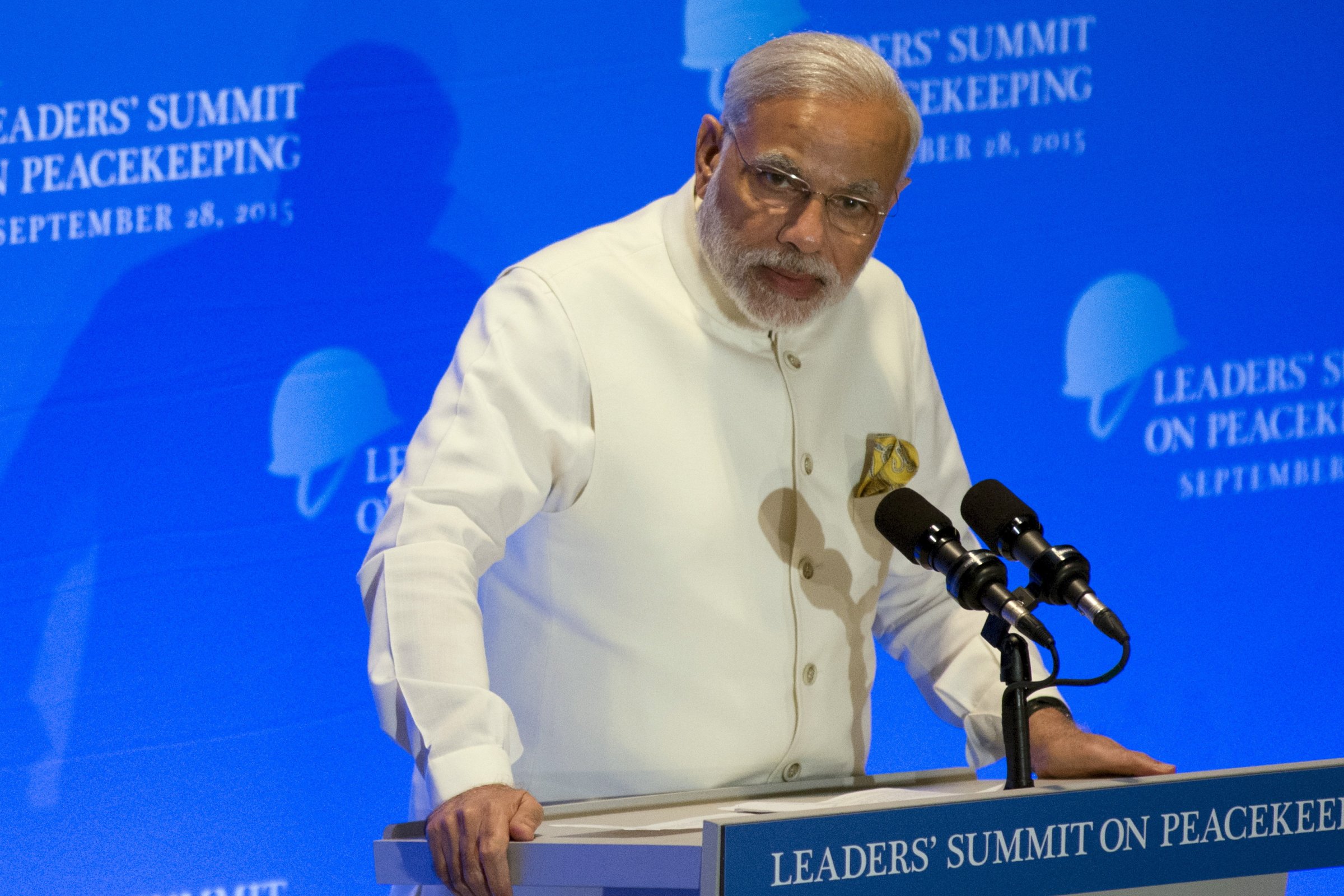
Indian Prime Minister Narendra Modi finally addressed last week’s lynching of a Muslim man accused of eating beef, appealing for religious tolerance and ending his silence on a controversial incident that has raised concerns about growing violence against minorities in the officially secular South Asian nation.
Speaking at an election rally in the eastern state of Bihar, Modi appealed for a focus on economic progress rather than communal tensions, Reuters reported.
“We must decide whether Hindus and Muslims should fight each other, or against poverty,” he said. “Only peace and goodwill can take this country forward.”
Modi’s silence on the issue had begun to cause controversy, particularly as members of his party — the right-wing Bharatiya Janata Party (BJP) — made statements both implicitly and explicitly condoning the killing of 50-year-old Mohammad Akhlaq by a furious Hindu mob.
Tests later determined that the meat found in Akhlaq’s fridge — rumors of which led to his death — was mutton rather than beef, a government official told the Times of India newspaper.
On the same day Modi made his speech, BJP legislators in India’s northernmost state Jammu & Kashmir reportedly assaulted one of their Muslim colleagues in the state assembly for serving beef at a government hostel.
“I have done nothing wrong,” Abdul Rashid Sheikh, the lawmaker who was punched and kicked, told Reuters. “It [eating beef] is my religious right and also my fundamental right.”
The sale and consumption of beef has become something of a political football in the country since Modi came to power in May 2014, with his party advocating a nationwide ban that is already being enforced in multiple states.
Cows are considered sacred by the Hindus, who make up a majority of India’s 1.2 billion-strong population, but other religious groups like Christians, Muslims and even some sections of the Hindu population regularly consume their meat. Critics allege that a ban on beef, a comparatively inexpensive meat for many Indians, is being unfairly deployed to persecute religious minority groups, which disproportionately occupy lower socioeconomic strata.
“People should ignore controversial statements made by politicians,” Modi was quoted as saying later in his speech, “as they are doing so for political gains.”
More Must-Reads from TIME
- Why Trump’s Message Worked on Latino Men
- What Trump’s Win Could Mean for Housing
- The 100 Must-Read Books of 2024
- Sleep Doctors Share the 1 Tip That’s Changed Their Lives
- Column: Let’s Bring Back Romance
- What It’s Like to Have Long COVID As a Kid
- FX’s Say Nothing Is the Must-Watch Political Thriller of 2024
- Merle Bombardieri Is Helping People Make the Baby Decision
Write to Rishi Iyengar at rishi.iyengar@timeasia.com